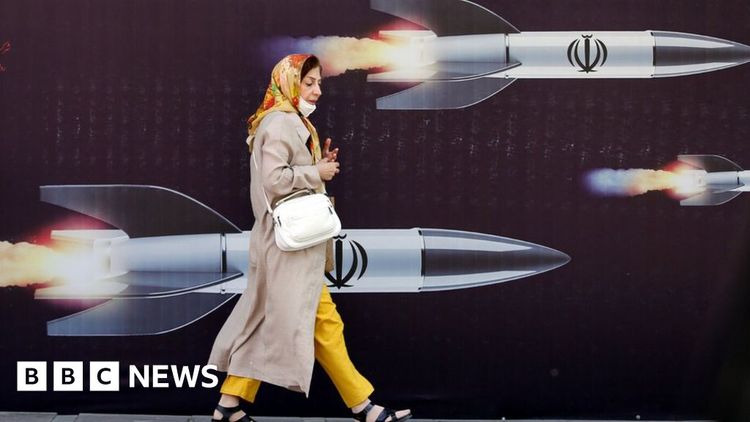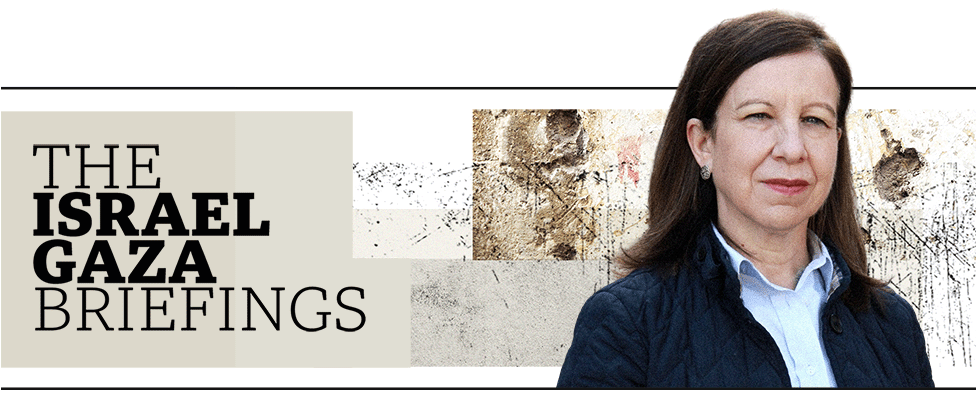Iran Israel: An audible sigh of relief in the Middle East

The most recent episode of the fiercest competition in the area seems to have ended, at least temporarily.

Israel has yet to declare or admit that it was responsible for the Friday morning attack in Iran.
At the same time, Iran's leaders in both the military and political spheres have minimized, disregarded, and even ridiculed any suggestion that anything significant took place.
There is still inconsistency and a lack of information about the weapons used and the extent of damage caused on Friday.
US authorities mention the use of missiles, while Iranian authorities contend that the incidents in Isfahan and Tabriz, located in the central and northwest regions of the country, respectively, were due to the actions of tiny detonating unmanned aerial vehicles.
Iran's Foreign Minister, Hossein Amir-Abdollahian, assured the semi-official Tasnim News Agency that the micro air vehicles that crashed did not result in any harm or loss of life.
Israel has frequently utilized basic quadcopters as a signature element in its clandestine activities within Iran.
On this occasion, they aimed their sights on the renowned region of Isfahan in the middle of the country, which is well-known for its remarkable Islamic cultural treasures.
Last Friday in Tehran, a lady from Iran was seen strolling by a banner that displayed images of missiles with an anti-Israel message.
Recently, the region has gained notoriety for the Natanz nuclear facility, the Isfahan Nuclear Technology Centre, and a significant airbase that was employed in Iran's assault on Israel on April 14th.
Additionally, it's an area of significant industrial activity where factories are situated to manufacture drones and ballistic missiles that were released in the direction of Israel in substantial numbers on the previous Sunday.
It appears that a restricted mission has sent a strong message - Israel possesses the knowledge and resources to attack Iran's core whenever they wish.
Israel deemed the message to be of high importance and therefore sent it out prior to the anticipated start of the Jewish Passover, contrary to what many people had expected from Israel's actions.
American authorities have expressed that Israel aimed for locations like Iran's air defense radar setup, which shields Natanz. However, it's unclear whether this mission was accomplished or not.
This assault could potentially be only the beginning of even more attacks. Nevertheless, it currently serves as an unintentional birthday surprise for Ayatollah Ali Khamenei, Iran's Supreme Leader, who has just turned 85 years old.
Israel chose not to speak publicly, allowing Iran's top decision-maker to have significant political leeway. As a result, Tehran didn't need to put in place its recent rule that stated whenever Israel attacked, Iran would respond aggressively, potentially leading to an extremely dangerous situation where tensions would constantly rise.
Iran is also enjoying its perceived increase of power.
The firm leader, Ebrahim Raisi, decided to omit any discussion about the latest occurrences during his speeches on Friday.
The Islamic Republic is focusing on something called Operation True Promise which was a surprise attack on Israel that occurred in the middle of the night last Sunday. The leader of the Islamic Republic stated that his country's determination and resolve were strong.
For a considerable amount of time, Iran has taken great pride in its "strategic patience" approach, opting to pursue a long-term strategy rather than responding straightaway and directly to any provocations.
Currently, it is implementing the strategy of "strategic deterrence". This novel approach has been sparked by the violent assault that took place on 1 April at its diplomatic facility situated in Damascus. The attack resulted in the destruction of its consular annex and led to the death of seven Revolutionary Guards, including the highest-ranking official in the district.
During the final six months of the distressing conflict in Gaza, Israel intensified its attacks, leading to a growing demand for Iran's highest authority to take a stand.
Israel has expanded its targeting beyond Tehran's assets in battle zones such as Syria and Lebanon, including arms caches, buildings, bases and supply routes. In addition to this, Israeli forces are now carrying out assassinations of high-ranking officials.
For many years, there was a strong animosity between two parties that was mainly expressed through secret battles and hidden actions. However, this enmity suddenly became a public and visible conflict.
Regardless of the details of this recent back-and-forth, there is a more significant objective for both parties: deterrence. The goal is to ensure that attacks on their respective lands will not occur again, with the understanding that there will be consequences if they do, and those consequences will be severe.
Currently, there is a noticeable sense of relaxation across the area, as well as in various notable cities.
Israel has been pressured by its allies to refrain from excessive retaliation, and this has temporarily eased tensions. It is the goal of all parties involved to prevent a disastrous full-scale war. However, it is important to acknowledge that the current ceasefire may not be a permanent solution.
The area is currently ablaze.
The ongoing conflict in Gaza continues to result in a significant amount of Palestinian casualties.
Israel has felt the pressure from its strongest supporters and has allowed for more vital aid to be delivered, yet the territory remains in great danger of experiencing a severe shortage of food.
The hostages from Israel have not been able to return and negotiations for a ceasefire aren't making progress. The government of Israel is still saying that there may be more fighting in the area of Rafah, which experts and leaders say could lead to a major humanitarian tragedy.
Iran has a group of representatives known as an "Axis of Resistance". This group is spread throughout the region and includes Hezbollah locations in Lebanon, militias in Iraq and Syria, and the Houthis in Yemen. Despite current circumstances, these representatives are still engaging in ongoing attacks.
Over the past several weeks, it feels like both everything and nothing has altered during this period that is the most perilous and gloomy in the area.









































